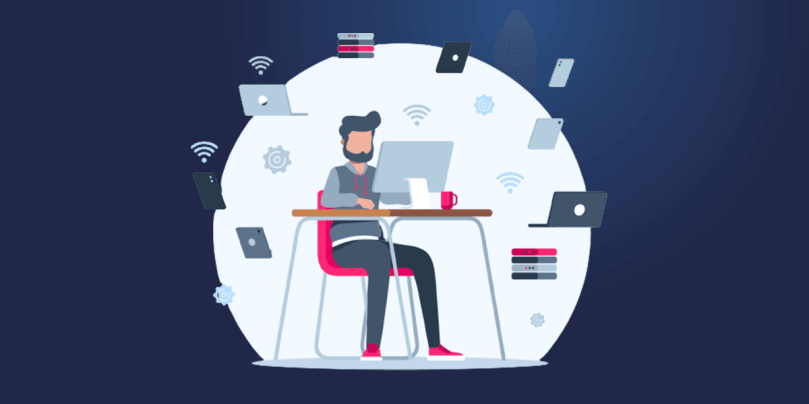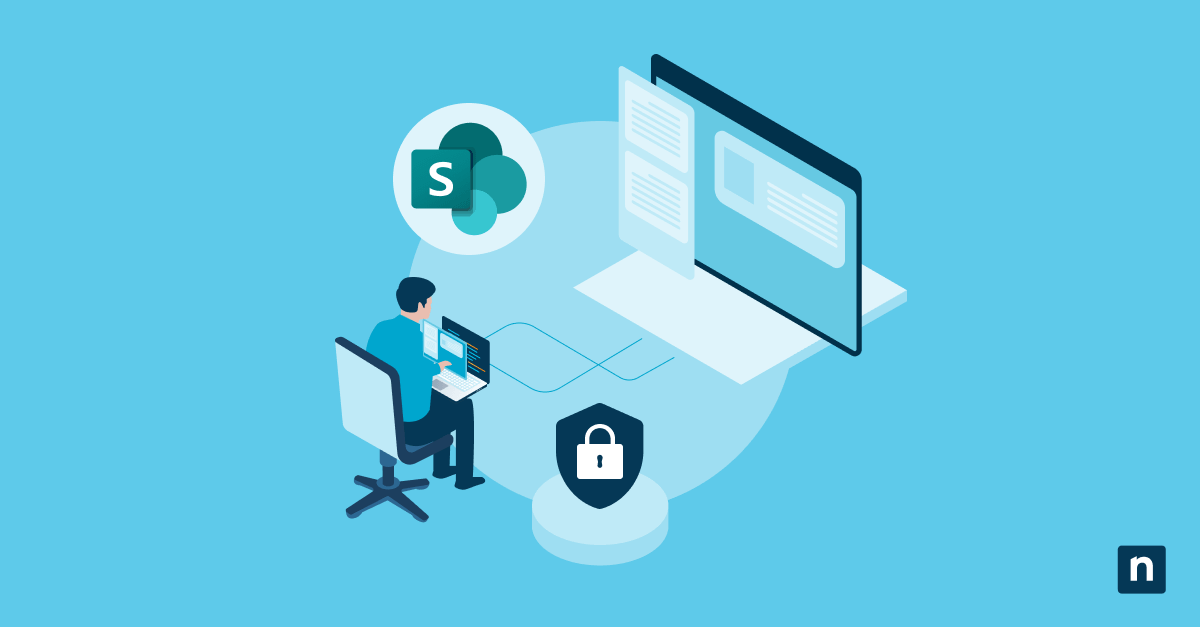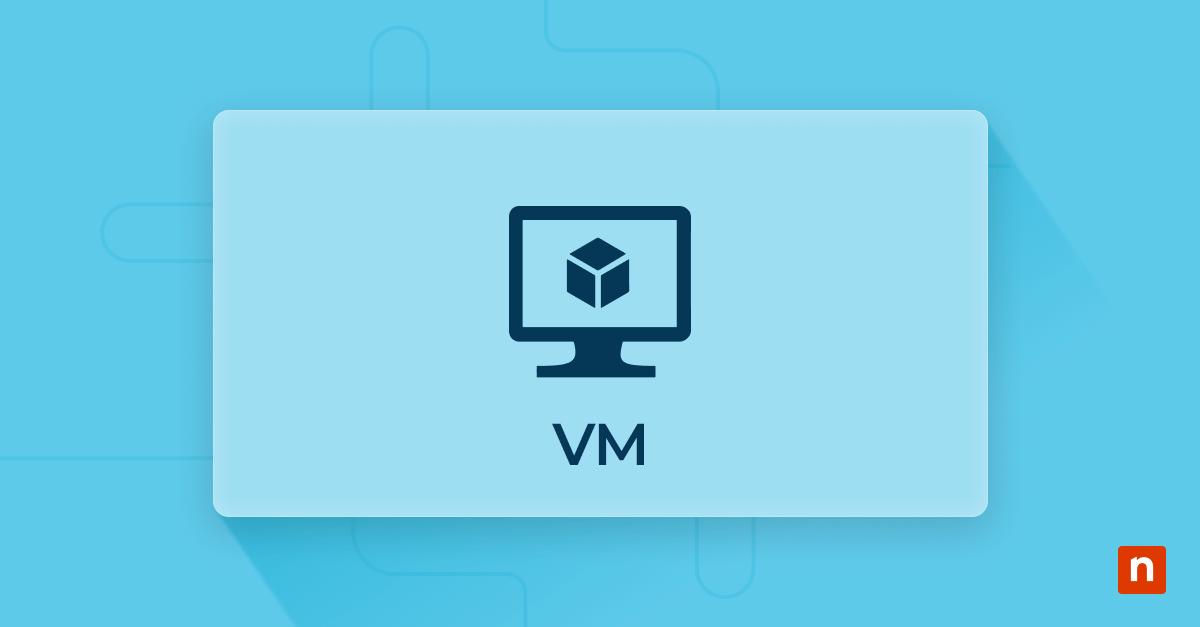Because of their portability and functionality, laptops have seen explosive growth in many organizations. Today, a new laptop is a typical component to a new employee’s onboarding package. The pandemic driven remote work boom has only accelerated the trend towards laptops and managing these IT assets, including their lifespan, has become a critical task for modern IT professionals.
How Long Do Laptops Last?
There are a variety of factors that can either lengthen or shorten the lifespan of laptops. Laptops can last for many years if properly handled and maintained, but other elements can limit their efficiency and usability in an organization’s IT environment.
Based on cost analysis through TCO (total cost of ownership) studies, it is recommended that laptops are replaced about every 4 years. However, a survey conducted by Spiceworks found that nearly half of organizations hold on to laptops for 5 or more years. Beyond 5 years, your technology runs the risk of slow speeds, low performance, and poor security.
Why the discrepancy? Many companies are under the assumption that when devices are working, they don’t need to be replaced anytime soon and can reduce costs by replacing them only when absolutely necessary. This school of thought can lead to organizations spending more money than if they would have been proactively monitoring and managing their laptops to know when devices are slowing or have symptoms that would lead to computer failure.
How Much Does It Cost to Replace Laptops and Computers?
The cost of replacing devices comes down to the unit price of these devices. For each individual device, cheaper budget laptops can generally be bought for around $400, whereas higher end laptops can cost up to $4,000 or more.
The overall cost of replacing laptops and computers depends on the size of an organization, how many you upgrade at a time, and the kind of devices you replace them with. Additionally, it will cost you extra in order to get them up and running. Each laptop will need to have the proper settings for your organization, security system in place on the device, and software uploaded so that operations on the device can commence.
Replacing your IT assets is essential for IT modernization. Outdated technology in your organization can have a negative effect on operations and ultimately cost you more than the cost of updating and replacing devices in your IT environment.
What Are the Main Reasons for Computer Failure?
There are many causes of computer failure, and sometimes it can be a result of a combination of factors. The main reasons for computer failure include:
Environment
Wherever your devices are located, they should be in an environment that is conducive to effective computer operations. IT assets need a clean and tidy workstation away from dirt, dust, water and other fluids, and any other small particles. Computers also need cool room temperatures, away from any extremes. Extreme heat is more worrisome because computers heat up when they are operating, and if they become too hot, the devices can become damaged.
Hardware and Software
Any hardware or software in your IT environment that is outdated will likely not be able to handle all that you need those devices to do and can ultimately lead to computer failure. Old hardware isn’t specially built to run the newer and updated systems. Unpatched software can leave the doors wide open for viruses and malware to enter computers and put your entire IT environment in jeopardy. Without the proper hardware and software in place, it can also result in failures of the operating system.
Power Problems
Issues with the power supply of your laptops and computers affects how well they are able to operate. If these devices don’t have enough power or lose it too quickly due to a bad battery, it will have negative consequences on the device as a whole. It won’t have adequate power supply to support computer operations, and eventually cause a computer failure.
Movement
Any movement of laptops and computers always runs a risk of damage to the system. Accidental impact against other surfaces, like knocking it against a table or dropping it on the ground, can harm the wiring and circuits inside and lead to the computer failing. Normal wear and tear such as being carried in a bag or transported from one surface to another also affects the computer system.
User Error
User error consists of mistakes we make as humans. Forgetting to check the battery of a device is one example. If a user forgets to see whether there is enough battery, or check the health of the battery, the computer might unexpectedly shut down and fail. A user could also accidentally power down the machine immediately, thus affecting any unsaved work or messing with the proper powering down process. User error could also include someone with malicious intent who causes a computer failure on purpose.
How Do I Make Laptops and Computers Last Longer?
Laptops and computers are valuable physical IT assets in your organization’s IT environment, so it is important to increase their lifespan so you can maximize their use. Though there are some aspects of technology that you don’t have a lot of control over, such as how quickly advances in hardware and software occur, here are few tips to make these devices last longer:
- Handle carefully
- Clean regularly
- Maintain a cool environment (to prevent from overheating)
- Replace the battery
- Use antivirus software
- Apply patches regularly
- Keep liquid, food, dust, and other damaging substances away from devices
- Monitor health of devices
How Do I Monitor My Laptops and Computers?
Actively monitoring all your organization’s devices to make sure they’re up-to-date is a difficult task. Fortunately, software has been created to help you perform this very task.
NinjaOne’s IT Asset Monitoring and Alerting software allows you to monitor your entire IT infrastructure from a single pane of glass and get in depth information about the health of each IT asset in your organization. Sign up for a free trial today.







